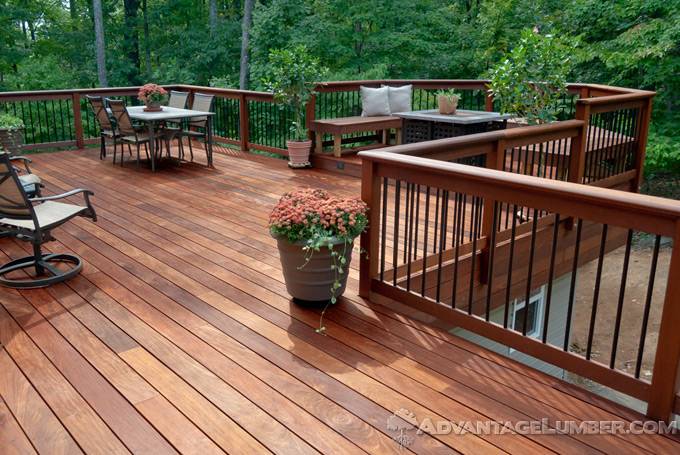
Spring is finally here. That means plenty of entertaining, grilling, or just enjoying a nice evening after work on your deck. But, before anything, it’s also time to consider the overall health of your deck.
If your deck is over 10 years old, doing a thorough inspection of your joists, connecting fasteners, ledger, and railings is a must. For older decks made of softer materials like cedar, redwood, and pressure treated decking, it might be time to consider replacing your deck altogether. Softer woods tend to rapidly decay and near the end of their lifespan past the 15 year mark (especially old pressure treated decks!). Instead of glossing over that old wood with a temporary stain, replacing your old deck with an exotic deck material is a safer, more reliable choice. Species like Cumaru, Tigerwood, Ipe, Garapa, and Massaranduba offer you over 25 years of hassle free use. (Ipe has a proven lifespan of over 75 years!) They’re also priced comparably with composite decking. Unlike the plastic wood decking, the decking species we offer give you that authentic look like synthetic material just can’t match.
But, what if you already own an exotic hardwood deck made of Ipe, Cumaru, or Tigerwood?